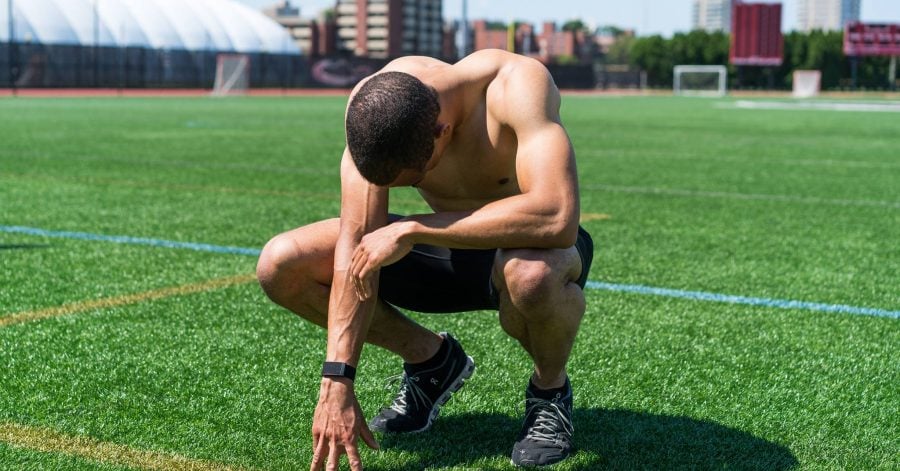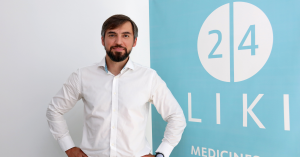Whoop, personal fitness and health tracking wearable company based in Boston, Massachusetts, has reached an impressive €3B valuation, after raising a Series F round of €170M. The achievement triples the startup’s valuation versus last year. SoftBank led the funding round, with participation from investors such as IVP and Thursday Ventures. One of the co-founders and the Director of Mechanical Engineering is Aurelian Nicolae, a Romanian entrepreneur and engineer established in Boston, after having graduated from Harvard University.
Unlocking information that can drive performance and health
Whoop offers personalized digital fitness and health tracking and guidance through its wearable band and associated app.
At a fundamental level, it is not much different from other wearable devices on the market. However, due to its features, the device is particularly popular among professional athletes. Whoop tracks biometrics such as respiratory rate, heart rate variability, and sleep data and offers actionable feedback on strain and recovery for optimal performance.
Тhe device hardware is free, when purchasing the subscription service for the platform, starting at €15 for 18 months.
The new funding round follows a period of rapid growth in membership, new hires, as well as product technology enhancements, the company states. To date, the Whoop team has 500 employees and has raised close to €340M.
Behind the financing, Kristin Bannon, Investment Director at SoftBank, expressed her excitement to continue supporting the Whoop team in improving healthcare in the US, as well as expanding internationally.
In 2022, the company plans to open offices worldwide, including a new global headquarters in Boston, with a capacity of 1000 team members. Whoop also plans to use the new capital to invest in R&D, improve the product technology, expand to new markets, and acquire leading technology companies to develop the membership offering.
“While we have experienced amazing growth in the past year, the potential of our technology and the vast market for health monitoring remains largely untapped,” said Will Ahmed, Whoop Co-Founder and CEO in the press release.
Personal health-tracking wearable devices are on the rise
The coronavirus pandemic has placed the spotlight on healthcare. Personal healthcare devices that people could use from the safety of their home, in particular, have been an obvious winner. For instance, Whoop has proven an effective tool in pointing users to early Covid-19 symptoms.
Last year, the wearable device alerted PGA Tour golfer Nick Watney of potential Covid-19 symptoms. On the morning before the RBC Heritage event, Nick noticed his respiratory rate spiking on the Whoop app. No other indicators had warned him until that point. The app prompted him to take a test, revealing that he was indeed positive.
As a result, the PGA Tour became a new Whoop partner, purchasing 1000 bands for its golfers and caddies.
Overall, the fitness and health tracker business will present a €53B market opportunity by 2023, increasing by ~20% since 2016. Tech giants are still the biggest players. Google recently acquired fitness tracking company Fitbit for €1.8 billion. This makes it the closest competitor of Apple Watch, the other fitness wearable that wants to lead in the health and wellness sector.
Elsewhere in Europe, exciting startups in the fitness and health data market have also secured major funding in 2021.
Previously, The Recursive told the story of the Greek Y Combinator graduate, Terra. The company builds an API that makes it simple for users to connect their health data to apps. In July, they announced the closure of a €2.4M round from US investors, including Samsung Next.
With the global sleeptech devices market at €10.6B in 2020, the sleep-regulating niche also seems sizable enough for wearables. Earlier this year, The Recursive met you with a SEE pioneer in the field, AYO. The startup founded by the Bulgarian Aleksandar Dimitrov and the Serbian Branislav Nikolic produces eyeglasses that can help regulate the biological rhythm, having been used by professional athletes and teams.
Launched out of Finland in 2015, Oura also focused its first product on measuring sleep, after raising the necessary funds in a Kickstarter campaign and a venture capital round. Fast forward to today, the product has expanded into measuring many other health parameters. This year, Oura raised a Series C funding round of ~€85M from investors around the world, including Singapore’s Temasek and Japan’s One Capital.








